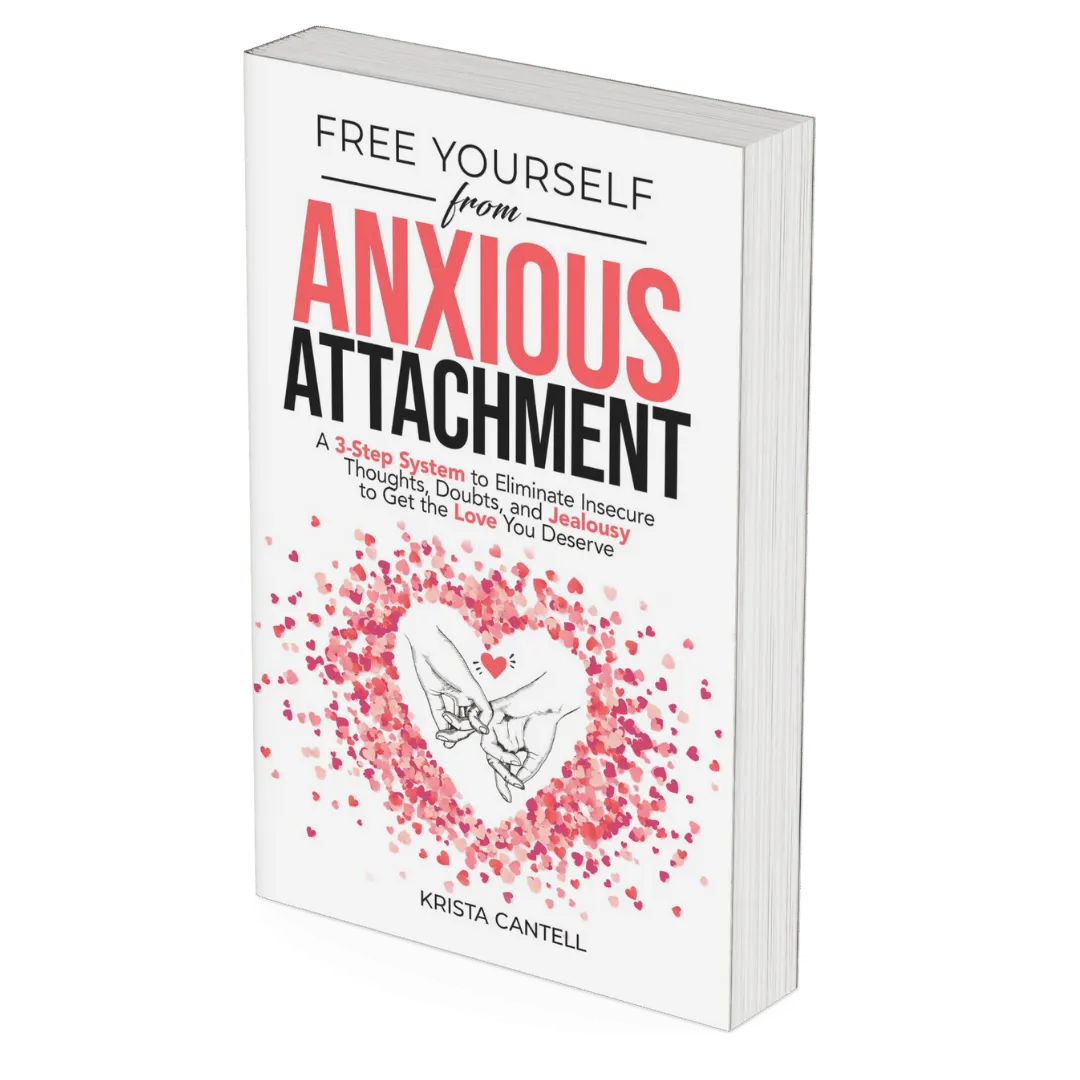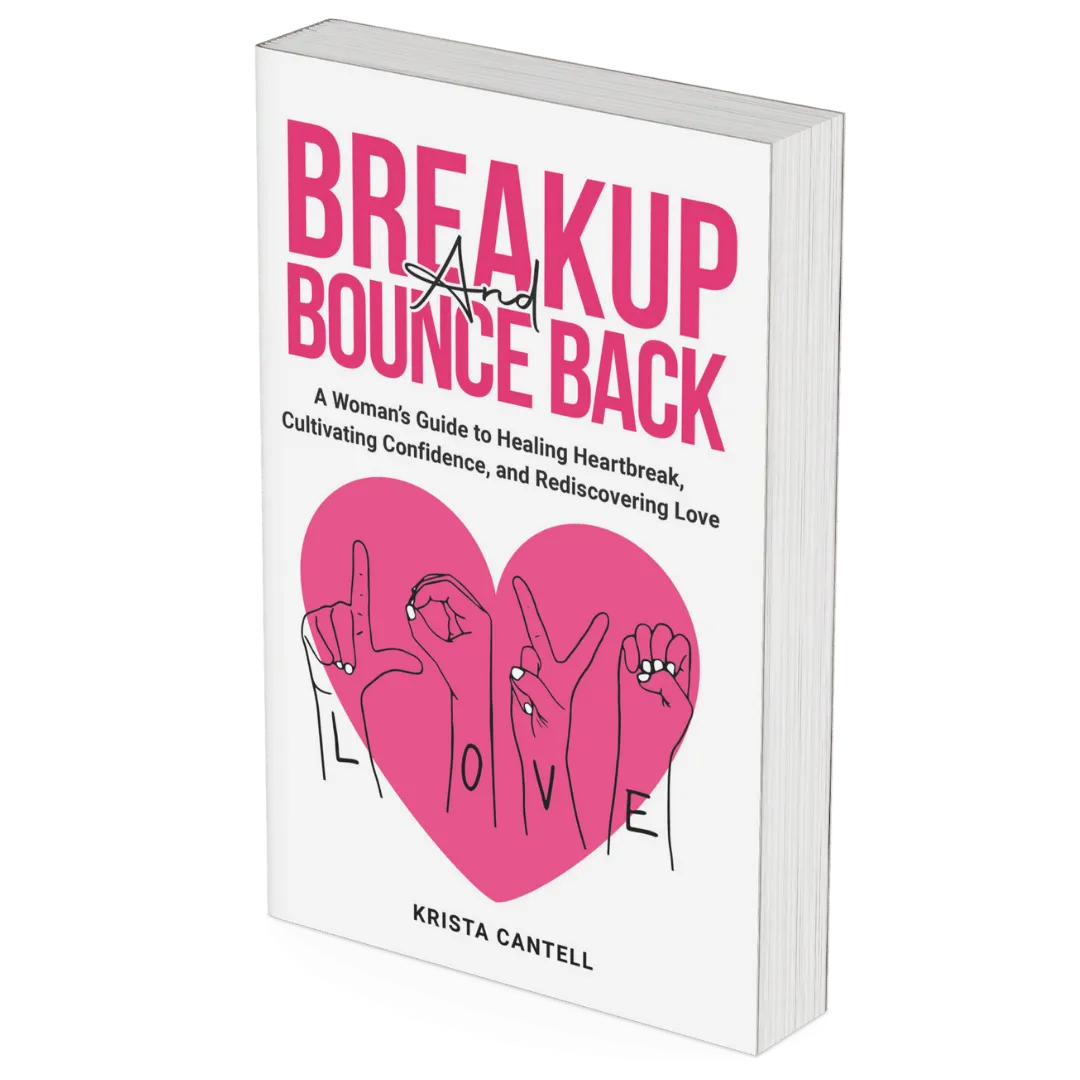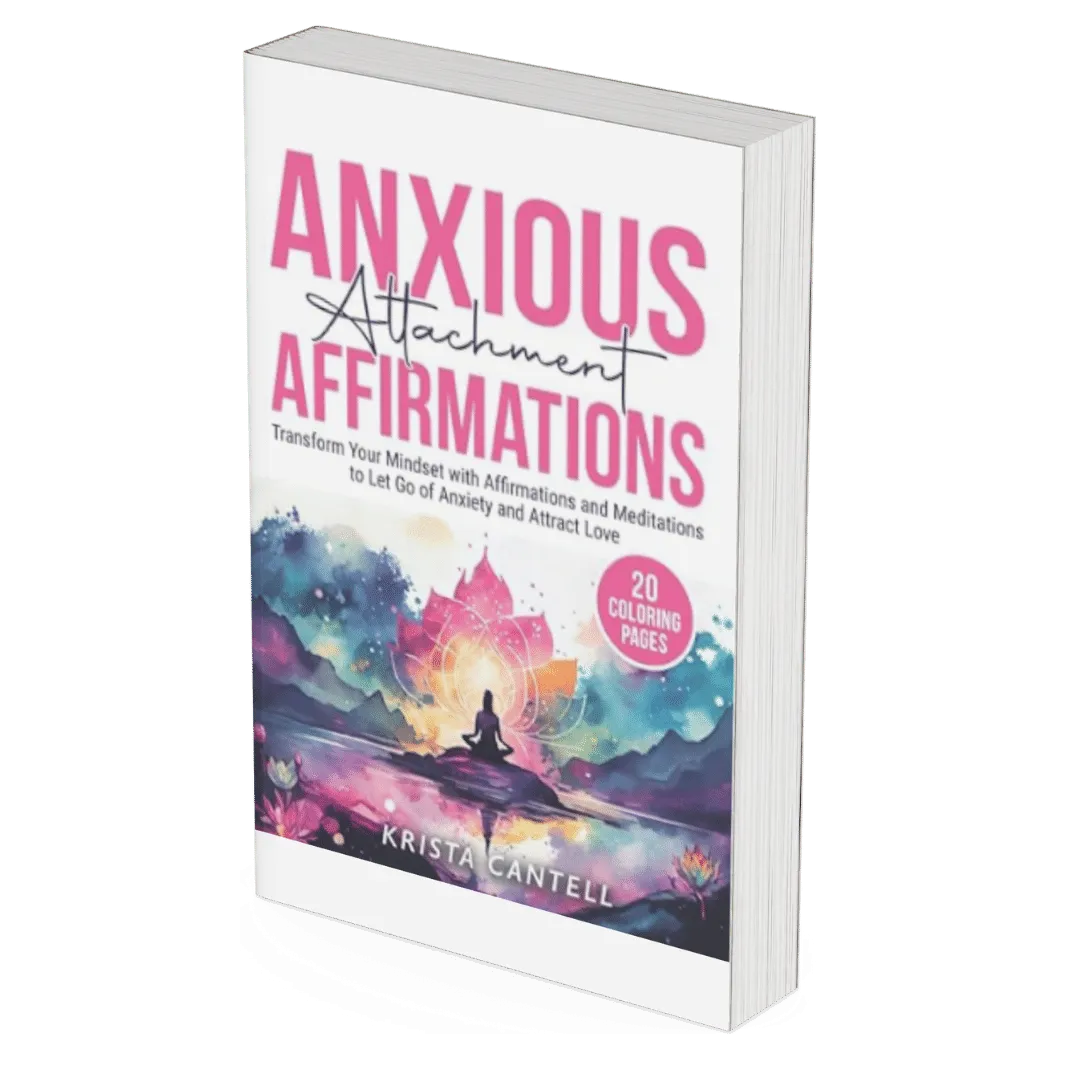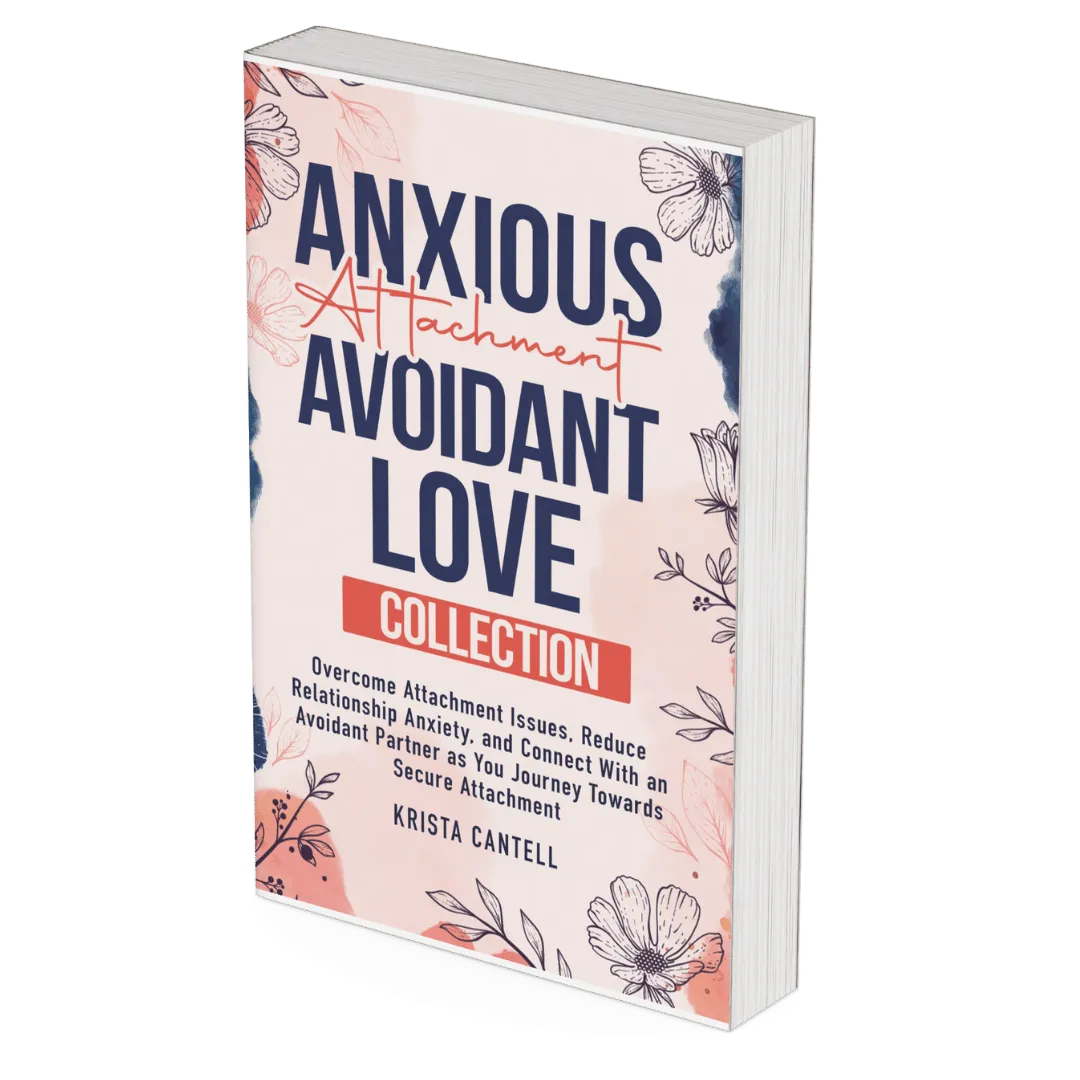Empowering Connections and Transforming Love
Attachment Theory Books for Lasting Love
Dive into our carefully curated selection of transformative books, enriching courses, and expert therapist recommendations, all designed to empower you with the knowledge and tools to build deeper, more fulfilling connections. Whether you're seeking to understand your relationship patterns, improve communication with your partner, or simply enrich your personal growth journey, Attachment Theory Books is here to light the way. Start your journey towards stronger, healthier relationships today!
FEATURED ATTACHMENT BOOKS THIS MONTH
Transform Your Love Life
Transform Your Love Life by embracing a secure attachment style with your partner. Discover the essence of enduring love through attachment theory, fostering deeper empathy, trust, and emotional connection. Our resources offer insights and practical tools to help you and your partner grow together, strengthening your bond. Whether starting anew or enriching an existing relationship, a secure attachment approach leads to a more fulfilling, loving partnership. Start your transformative journey with us and elevate the quality of your relationship.

Attachment Theory Books & Resources

Attachment Book Recommendations
Explore the transformative world of attachment theory with our handpicked book recommendations. Start your self-help journey with us, and unlock the secrets to a more fulfilling love life through the power of knowledge and self-discovery.
Connect with Therapists
Connect with the right support on your journey to healthier relationships. We offer easy access to a network of therapists specializing in attachment theory. Find the perfect match for your unique needs and start working towards a more secure, fulfilling partnership with expert guidance.

From The Attachment Theory Books Blog
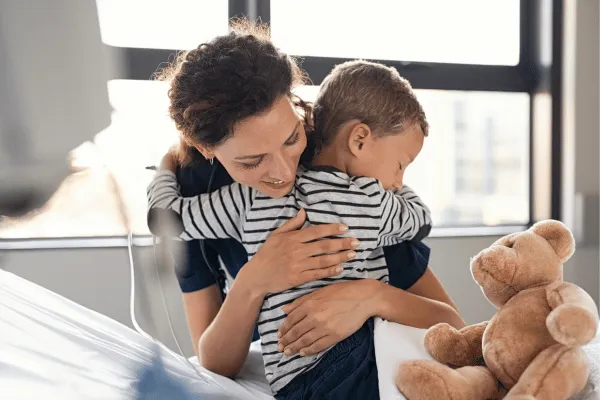
Secure vs Insecure Attachment Styles: Understanding the Differences
Attachment styles are an important aspect of our emotional development and can have a significant impact on our adult relationships. Understanding these attachment styles is crucial to developing healthy and fulfilling relationships. In this article, we will explore the differences between secure and insecure attachment styles and how they can impact our lives.

Secure attachment styles are characterized by a sense of trust and security in relationships. Those with secure attachment styles tend to have healthy and stable relationships, with a strong ability to communicate their needs and emotions. On the other hand, insecure attachment styles can lead to difficulties in relationships, including issues with trust, communication, and emotional regulation.
By exploring the characteristics of secure and insecure attachment styles, as well as their development and impact on adult relationships, we can gain a better understanding of our own attachment style and how to improve our relationships. Additionally, we will discuss how attachment styles can impact parenting and how attachment theory is used in modern psychology.
Key Takeaways
Attachment styles can have a significant impact on our adult relationships.
Secure attachment styles are characterized by trust and security, while insecure attachment styles can lead to difficulties in relationships.
Understanding attachment styles is crucial to developing healthy and fulfilling relationships.
Understanding Attachment Styles

Definition of Attachment
Attachment refers to the emotional bond that forms between two individuals, typically between a child and their caregiver. The attachment bond is crucial for a child's emotional and social development, as it helps them feel secure and supported. Attachment styles are patterns of behavior that develop during childhood and continue into adulthood, influencing how individuals form and maintain relationships.
Secure Attachment Explained
Individuals with a secure attachment style tend to have positive views of themselves, others, and relationships. They are comfortable with intimacy and are able to seek support from others when needed. Securely attached individuals are able to regulate their emotions and respond appropriately to the emotions of others. They are also able to communicate effectively and resolve conflicts in a healthy manner.
Insecure Attachment Explained
In contrast, individuals with insecure attachment styles tend to have negative views of themselves, others, and relationships. There are three types of insecure attachment styles: anxious, avoidant, and disorganized. Anxiously attached individuals tend to be preoccupied with their relationships and fear rejection or abandonment. Avoidantly attached individuals tend to avoid emotional closeness and may feel uncomfortable with intimacy. Disorganized attachment is characterized by inconsistent and unpredictable behavior, often due to unresolved trauma or abuse.
Research has shown that attachment styles have a significant impact on an individual's mental health, social functioning, and overall well-being. Understanding attachment styles can help individuals identify patterns in their relationships and work towards developing healthier attachment behaviors.
Characteristics of Secure Attachment
Secure attachment style is characterized by trust, emotional closeness, and a healthy balance between independence and intimacy. People with secure attachment styles tend to have positive self-esteem, good communication skills, and healthy boundaries. Here are some of the key characteristics of secure attachment style:
Trust: People with secure attachment styles have a strong sense of trust in their relationships. They believe that their partners are reliable and dependable, and they feel comfortable relying on them for emotional support.
Emotional Closeness: Securely attached individuals are comfortable with emotional closeness and intimacy. They are not afraid to express their feelings and needs, and they are able to empathize with their partners.
Communication Skills: People with secure attachment styles tend to have good communication skills. They are able to express themselves clearly and listen actively to their partners. They are also able to resolve conflicts in a constructive and respectful manner.
Healthy Boundaries: Securely attached individuals have healthy boundaries. They are able to set limits and say no when necessary, without feeling guilty or anxious. They are also able to respect their partner's boundaries and needs.
Overall, secure attachment style is characterized by a strong sense of trust, emotional closeness, good communication skills, and healthy boundaries. People with secure attachment styles tend to have healthy and fulfilling relationships, and they are able to navigate the ups and downs of life with confidence and resilience.
Characteristics of Insecure Attachment Styles
Insecure attachment styles are characterized by a lack of trust, fear of abandonment, and difficulty in forming close relationships. These attachment styles develop in early childhood and can persist into adulthood. There are three types of insecure attachment styles: anxious, avoidant, and disorganized.
Anxious Attachment Style
People with an anxious attachment style tend to be preoccupied with their relationships and have a constant fear of rejection or abandonment. They may worry that their partner does not love them or is not committed to the relationship. They may also be clingy and dependent on their partner, seeking constant reassurance and validation. This can lead to a cycle of neediness and rejection, which further reinforces their anxiety.
Avoidant Attachment Style
People with an avoidant attachment style tend to be emotionally distant and may have difficulty forming close relationships. They may avoid intimacy and may not express their feelings or needs to their partner. They may also be dismissive of their partner's emotions and needs, which can lead to feelings of neglect and rejection. This can create a cycle of emotional distance and dissatisfaction in their relationships.
Disorganized Attachment Style
People with a disorganized attachment style may exhibit a combination of anxious and avoidant behaviors. They may have difficulty regulating their emotions and may experience intense mood swings. They may also have a history of trauma or abuse, which can make it difficult for them to form trusting relationships. This can lead to a cycle of confusion and unpredictability in their relationships.
In summary, insecure attachment styles can have a significant impact on our relationships and emotional well-being. By understanding the characteristics of these attachment styles, we can begin to recognize our own patterns of behavior and work towards developing more secure attachment styles.
Impact on Adult Relationships
Attachment styles can have a significant impact on adult relationships. The way we attach to others can influence how we interact with them, how we perceive their actions, and how we respond to their needs and emotions.
Secure Attachment Styles in Relationships
People with a secure attachment style tend to have healthy, fulfilling relationships. They are comfortable with intimacy and closeness, and they are able to communicate effectively with their partners. They trust their partners and feel secure in the relationship, even when there are conflicts or disagreements.
Research has shown that secure attachment is associated with better relationship satisfaction, higher levels of emotional support, and more effective conflict resolution. Securely attached individuals are also more likely to seek support from their partners when they are going through difficult times.
Insecure Attachment Styles in Relationships
On the other hand, insecure attachment styles can lead to difficulties in adult relationships. There are three types of insecure attachment: anxious, avoidant, and disorganized.
People with an anxious attachment style tend to be clingy and needy in relationships. They may fear abandonment and worry that their partners do not love them or will leave them. This can lead to jealousy, possessiveness, and controlling behaviors.
People with an avoidant attachment style, on the other hand, tend to be emotionally distant and may avoid intimacy in relationships. They may fear getting hurt or rejected, and may push their partners away or keep them at a distance.
Lastly, people with a disorganized attachment style may have a mix of anxious and avoidant behaviors. They may struggle with trust and may have difficulty regulating their emotions in relationships.
In general, insecure attachment styles are associated with lower levels of relationship satisfaction, more conflict, and less emotional support. However, it is important to note that attachment styles are not set in stone and can change over time with therapy and self-reflection.
Overall, understanding your attachment style can help you to recognize patterns in your relationships and work towards building healthier, more fulfilling connections with others.
Our Service

Attachment Books
Explore the transformative world of attachment theory with our handpicked book recommendations. Start your self-help journey with us, and unlock the secrets to a more fulfilling love life through the power of knowledge and self-discovery.
Therapist Connect
Connect with the right support on your journey to healthier relationships. We offer easy access to a network of therapists specializing in attachment theory. Find the perfect match for your unique needs and start working towards a more secure, fulfilling partnership with expert guidance.


